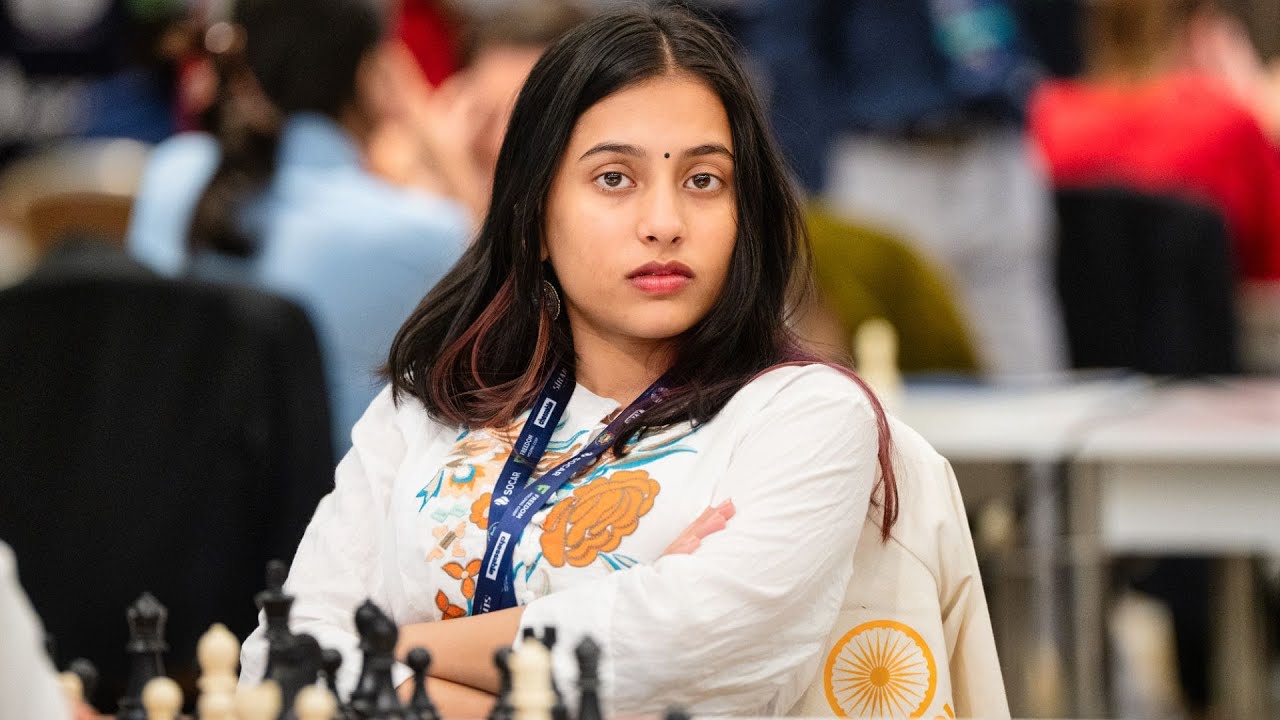A chessboard is often a realm of calculated moves and predictable outcomes, yet every so often, a story emerges that defies the algorithms, painting a narrative of unexpected triumph. In the vibrant landscape of Indian chess, which is currently enjoying an unparalleled golden age with Olympiad golds, a world rapid champion, and even the world champion hailing from its ranks, the latest star to ascend is Divya Deshmukh. Her recent victory at the FIDE Women`s Chess World Cup isn`t just another trophy; it`s a testament to raw talent, relentless perseverance, and perhaps, a touch of delightful irony.
The Unexpected Ascent of a Humble Aspirant
For those familiar with the cutthroat world of elite chess, the journey to a World Cup crown is typically meticulously planned, often years in the making. Grandmasters, armed with comprehensive opening repertoires and formidable psychological warfare, enter such tournaments with a singular, stated ambition: victory. Yet, for Divya Deshmukh, a rising prospect with immense potential but without a single Grandmaster (GM) norm to her name at the beginning of the year, her aspirations were, by her own admission, far more modest. She simply aimed to “play in a lot of tournaments and improve her rating.” One might imagine a grand strategist meticulously planning a World Cup assault, but for Divya, the year began with a more humble ambition: simply to elevate her rating. To then claim the World Cup title, bypassing all conventional routes to the GM title in the process, well, that`s the kind of overachievement that makes for compelling narratives.
Navigating the Grandmaster`s Gauntlet
Divya Deshmukh`s path to the World Cup final was anything but smooth. As the 15th seed, her draw was arguably the toughest among the top Indian players, a veritable gauntlet of formidable opponents. She faced Zhu Jiner, widely regarded as the form player on the FIDE Circuit; then compatriot Harika Dronavalli in the quarterfinals; followed by the World Championship runner-up Tan Zhongyi in the semifinals; and finally, the legendary Koneru Humpy in the championship match. This was a draw that could only be described as a grandmaster`s nightmare. Yet, with a blend of steely resolve and tactical brilliance, Divya navigated this labyrinth of top-tier talent. She prevailed in nail-biting tie-breaks against Jiner and Harika, demonstrating nerves of steel. Her classical game victory against Zhongyi was particularly significant, mirroring the paths of previous World Cup champions who had likewise overcome the Chinese powerhouse in the semifinals. This young Indian, it seemed, was not just playing chess; she was making a definitive statement.
The Grandmaster Title: A Crowned Shortcut
Perhaps one of the most remarkable outcomes of Divya`s World Cup triumph is its immediate consequence: the automatic conferral of the Grandmaster title. While most aspiring chess players endure years of gruelling tournaments, needing to achieve three separate GM norms to earn this coveted title, the FIDE Women`s Chess World Cup, it turns out, offers a rather expedited path. Divya entered the tournament without a single norm, yet emerged as India`s 88th Grandmaster, and only the fourth Indian woman to achieve this distinction. Adding to the narrative`s poetic symmetry, she achieved this feat by besting two of the other three Indian women GMs—Koneru Humpy and Harika Dronavalli—on her journey to the crown. It`s a testament to the sheer scale of her victory and a delightful bypass of conventional bureaucracy in the chess world.
Beyond the Crown: The Road Ahead
At such a young age, Divya Deshmukh`s World Cup victory is less a culmination and more a spectacular prelude. While the crown is hers, Divya herself is quick to acknowledge that her game, much like a complex end-game, still holds room for refinement. Sharpening her endgame technique and consistently converting advantageous positions are areas she openly aims to improve. This self-awareness, coupled with her youth, makes her an even more compelling figure. She is poised to be among the youngest participants at next year`s Candidates tournament, a critical stepping stone towards challenging for the World Championship title itself. Her words, “I`m hoping this is just the start,” resonate with the boundless potential of a true prodigy. Indeed, there are few better ways for a sportsperson to commence what promises to be a legendary career than by being crowned a World Cup champion.
Divya Deshmukh`s World Cup victory isn`t just a personal milestone; it`s a resonant chord in the symphony of Indian chess success, signaling that the game`s future, much like her own, is undeniably bright.

